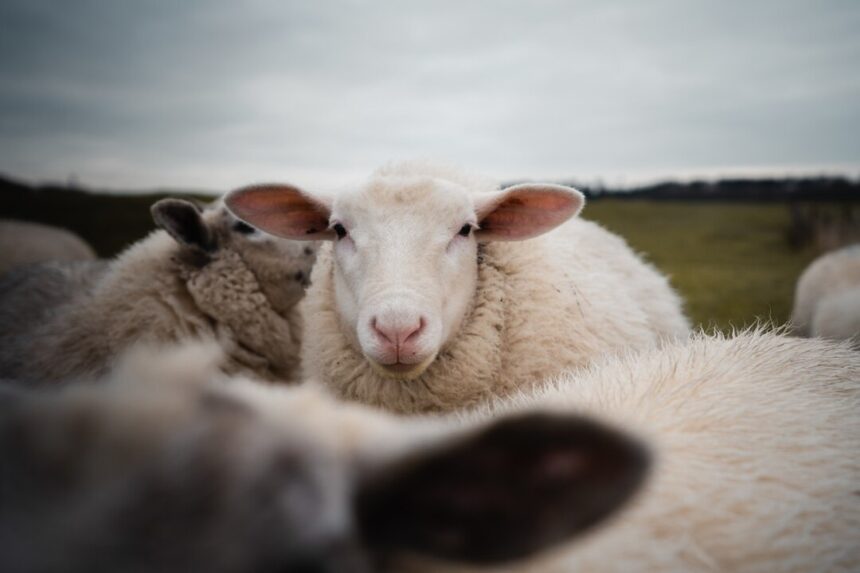Ile de France sheep, known for their excellent meat and wool qualities, have gained popularity among farmers worldwide, including South Africa. Originally from France, these versatile sheep have adapted well to various climates and production systems, making them a valuable asset to the South African farming community. For those considering breeding and farming Ile de France sheep in South Africa, understanding key aspects of their management and husbandry is crucial. In this article, we’ll delve into ten essential insights to guide you on a successful journey with Ile de France sheep in the South African context.
1. Origins and History:
Ile de France sheep originate from the Ile de France region of France and are a result of crossbreeding between Dishley Leicester and Rambouillet sheep. Bred primarily for meat production, these sheep have gained recognition worldwide for their superior carcass quality and growth rates.
2. Adaptability to South African Conditions:
Ile de France sheep have demonstrated excellent adaptability to various climatic conditions, making them well-suited to South Africa’s diverse farming environments. Whether in the cooler regions of the Western Cape or the warmer climates of the Free State, Ile de France sheep thrive on quality pasture and proper management.
3. Meat Production:
One of the primary attributes of Ile de France sheep is their exceptional meat quality. With a well-muscled frame and a high dressing percentage, these sheep produce superior carcasses with lean meat and minimal fat content, making them desirable for both commercial and stud farming operations.
4. Reproductive Efficiency:
Ile de France sheep are known for their high reproductive efficiency, with ewes exhibiting good mothering abilities and strong maternal instincts. Their early sexual maturity and prolificacy contribute to efficient breeding programs and optimal lamb production.
5. Wool Characteristics:
While Ile de France sheep are primarily valued for their meat production, they also produce a medium-grade wool with good staple length and fiber diameter. While not as fine as Merino wool, Ile de France wool is suitable for various textile applications and provides additional income streams for farmers.
6. Nutrition and Feeding Requirements:
Providing adequate nutrition is essential for optimizing the growth, reproduction, and overall health of Ile de France sheep. Ensure access to high-quality pasture, supplemented with balanced rations during periods of nutritional stress or when grazing is limited.
7. Health and Disease Management:
Maintaining the health and well-being of Ile de France sheep requires diligent disease prevention and management practices. Implement routine vaccinations, parasite control programs, and biosecurity measures to safeguard your flock against common diseases and minimize the risk of outbreaks.
8. Breeding Considerations:
When breeding Ile de France sheep, selecting superior breeding stock with desirable traits is paramount. Focus on traits such as growth rate, carcass quality, reproductive performance, and wool characteristics to enhance the genetic potential of your flock and achieve desired production outcomes.
9. Handling and Husbandry Practices:
Effective handling and husbandry practices are essential for the welfare of Ile de France sheep and the efficiency of farm operations. Invest in well-designed handling facilities, employ low-stress handling techniques, and provide adequate shelter and amenities to ensure the comfort and safety of your flock.
10. Marketing Opportunities:
Explore various marketing channels and opportunities to showcase the superior quality of Ile de France lamb to discerning consumers. Partner with reputable meat processors, retailers, and restaurants to access premium markets and capitalize on the growing demand for high-quality lamb products.
Breeding and farming Ile de France sheep in South Africa present exciting opportunities for livestock producers to capitalize on the breed’s exceptional meat and wool qualities. By understanding their origins, remarkable attributes, and management requirements, farmers can embark on a rewarding journey with Ile de France sheep, contributing to the success and sustainability of the sheep industry in South Africa.
Join 'Farmers Mag' WhatsApp Channel
Get the latest Farming news and tips delivered straight to your WhatsApp
CLICK HERE TO JOIN






